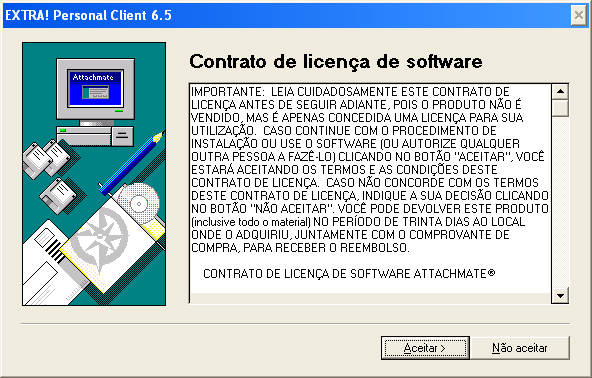committee for public counsel services children and family law division 44 bromfield street, boston, ma 02108, phone: (617) 482-6212; fax:
Committee for Public Counsel Services
Children and Family Law Division
44 Bromfield Street, Boston, MA 02108, Phone: (617) 482-6212; Fax:
(617) 988-8455
Memorandum
TO: CAFL Appellate Attorneys
FROM: Andrew Cohen, Director of Appellate Panel, CPCS Children and
Family Law Division
DATE: May 2017
RE: Making the “Questions Presented” an Advocacy Tool
Too often we see briefs where the “Questions Presented” are boring and
the answers to the questions are unclear. That section is an
opportunity for advocacy. The phrasing of the issues should strongly
suggest the answers you want.
(Note: As an appellee, you are not bound by the Questions Presented
posed by the appellant. Feel free to frame the issues as you see
them.)
Issue (Boring)
Whether the department failed to make reasonable efforts to reunify
Father and Child.
or
Did the department fail to make reasonable efforts to reunify Father
and Child?
These are not good “Questions” because they don’t call for any
particular answer. They just tell the panel that “reasonable efforts”
is addressed in the brief. But that’s already clear in the Argument
headers in the table of contents, so questions phrased like these add
nothing. (Note that sentences beginning with “Whether” should not end
with a question mark, because the sentence is not a question;
questions beginning with “Did,” on the other hand, should end with a
question mark.)
Issue (Better)
Whether the department failed to make reasonable efforts to reunify
Father with his son where it failed to schedule visitation between
them, failed to provide Father with parenting classes, and failed to
inform him of his son’s special mental health needs.
This is much better, because it calls for the answer the
appellant-father wants. Adding additional facts to the Issue makes it
much more persuasive. But the sentence is long, and long sentences can
cause eye-glaze and inattention.
Another technique – and one we think is usually the most compelling –
is Bryan Garner’s “deep issue” method. He suggests a (usually)
three-sentence, 50-75 word approach:
Issue (Best?)
Section 29C of chapter 119 requires that the department make
reasonable efforts to reunify parents and children and provide timely
services to this end. Here, the department failed to schedule
visitation between Father and his son, never provided Father with
parenting classes, and never informed him of his son’s mental health
needs. Did the department fail to make reasonable efforts to reunify
Father with his son?
No rules prohibit a multi-sentence “Question Presented.” The three
sentences are usually (1) a statement of the uncontested legal rule,
(2) a statement of the facts of the case relevant to the legal rule,
and (3) a final question. The final question is usually in the form of
the “boring” questions addressed at the top of this memorandum;
however, given the first two sentences, the “boring” question has an
obvious answer. Garner stresses the importance of keeping the
three-sentence issue within the 50-75 word limit. This is often the
hardest part.
Here are a few more examples of the “Deep Issue” method:
Parties can forfeit or constructively waive constitutional rights as a
result of their bad conduct. Father promised the Juvenile Court that
he could and would bring the Children to court, but repeatedly failed
or refused to do so, and then failed to come to court for a 72-hour
hearing of which he had notice. Under these circumstances, did the
Juvenile Court properly conclude that Father waived his right to a
72-hour hearing? (72 words)
Children can legally quit school when they turn sixteen. Here, the
Juvenile Court found Mother unfit because her sixteen-year-old
daughter missed forty days of school. Did the Juvenile Court err in
finding Mother unfit because she allowed her daughter to make an
attendance-related decision the daughter was legally allowed to make?
(51 words)
The Juvenile Court must have clear and convincing evidence that a
parent is currently unfit before terminating her rights. During the
fourteen months after DCF removed the child because of mother’s
substance abuse and homelessness, mother obtained stable housing,
graduated from a parenting program, attended every visit, and
maintained her sobriety except for a single relapse five months before
trial. Did the Court err in finding mother currently unfit by clear
and convincing evidence? (74 words)
Under Commonwealth v. Hurley, a hearsay declarant must be competent
before her statements are admissible under a hearsay exception. Here,
the child declarant had an I.Q. of 45, the Father challenged the
child’s competency, a court clinician determined her to be
incompetent, and DCF conceded her incompetency. Did the Juvenile Court
err in admitting her hearsay statements? (57 words)
Experts and treating clinicians are not permitted to testify that a
child is credible, was sexually abused, or shares characteristics with
sexually abused children. Here, the DCF experts, many of whom treated
the Child, vouched for her credibility, testified that she had been
sexually abused by Father, and compared her to sexually abused
children. Did the court err in permitting and relying on this
testimony to terminate Father’s parental rights? (70 words)
Courts cannot terminate parental rights without clear and convincing
evidence of parental unfitness. DCF’s only allegation against Father
was physical abuse with a belt, and the only evidence supporting this
allegation was improper-admitted hearsay from Father’s neighbor. Did
the court err in terminating his rights based on the improper hearsay
evidence? (51 words)
3
 SAINSUPKBRG001 NO SEMAKAN 2 BORANG JUALAN SEBUTHARGA
SAINSUPKBRG001 NO SEMAKAN 2 BORANG JUALAN SEBUTHARGA  LLAMADO PARA EQUIPAMIENTO TÉCNICO PROFESIONAL 40 1 ANTECEDENTES PARA
LLAMADO PARA EQUIPAMIENTO TÉCNICO PROFESIONAL 40 1 ANTECEDENTES PARA CURRICULUM VITAE DRA LILIANA SEMORILE CURRICULUM VITAE DRA LILIANA
CURRICULUM VITAE DRA LILIANA SEMORILE CURRICULUM VITAE DRA LILIANA SAFETY HEALTH AND ENVIRONMENT UNIT LADDER SAFETY CHECKLIST GENERAL
SAFETY HEALTH AND ENVIRONMENT UNIT LADDER SAFETY CHECKLIST GENERAL ACESSA A PASTA SNAEXTRA E EXECUTA O ARQUIVO SETUP
ACESSA A PASTA SNAEXTRA E EXECUTA O ARQUIVO SETUP LINEAMIENTOS PARA EXPORTACIÓN DE CEREZAS A VIETMAN 1 ANTECEDENTES
LINEAMIENTOS PARA EXPORTACIÓN DE CEREZAS A VIETMAN 1 ANTECEDENTES VARWWWDOC4PDFCOMTEMP179152DOC PAGE 13 OF 18 STANDARD OPERATING PROCEDURE FOR
VARWWWDOC4PDFCOMTEMP179152DOC PAGE 13 OF 18 STANDARD OPERATING PROCEDURE FOR